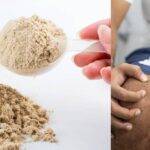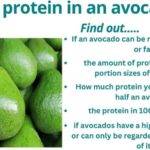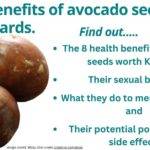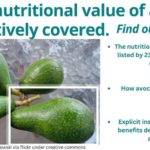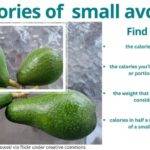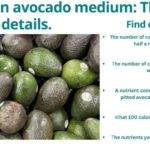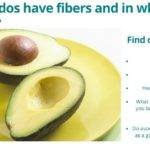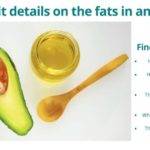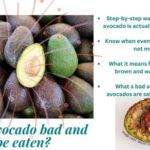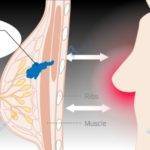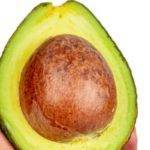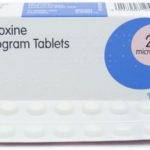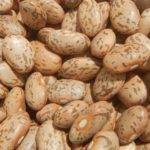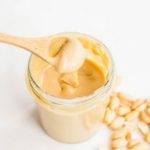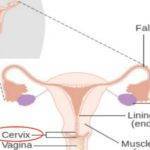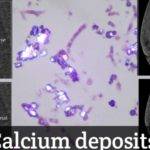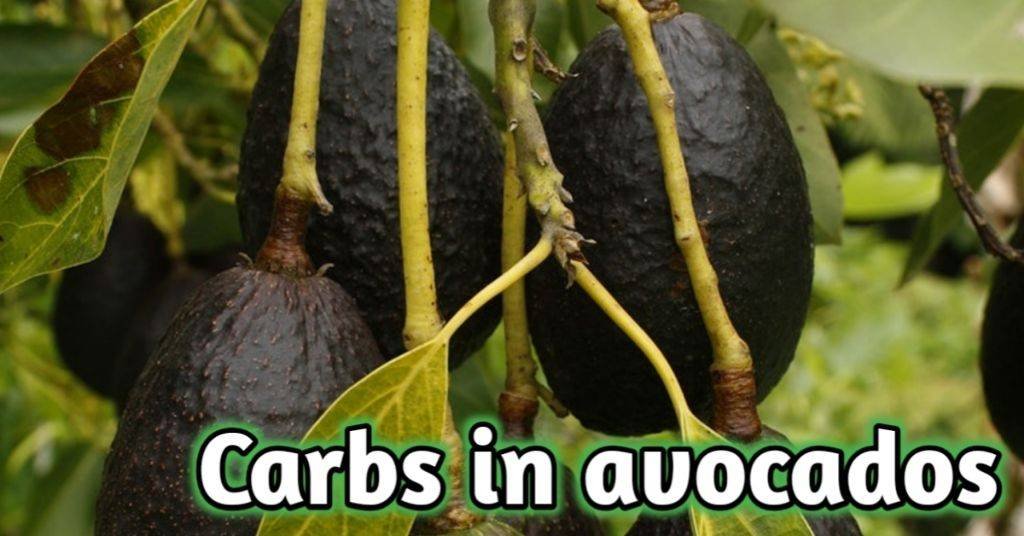
Table of Contents
Avocados fall in the class of medium energy-dense fruits containing about 8.53g of carbs per 100g of the fruit while a whole 150g of the fruit has about 12.8g of carbs according to the US dept. of Agriculture.1 The US dept. of agriculture. (governmental authority) visit source 80% of the edible portion contains about 72% water and 6.8% dietary fiber.
The skin and seed make up about 33% of the total weight of the fruit.2 National Library of Medicine. (governmental authority) visit source (cited on June 5th, 2022)
The avocado, which is also called butter fruit or alligator pears is probably native to south-central Mexico and Guatemala3Wikipedia On Avocado visit source but was introduced to the United States in 1871 in the Santa Barbara county of California via Mexico.4 National Center for Biotechnology Information. (governmental authority) visit source (cited on June 5th, 2022) The Mexicans had started cultivating it as early as 500 BC. (Source)
The fruit’s low carb content and high fats make it an ideal addition to a keto diet. Below is a table of the various amount of carbs contained in a couple of different quantities of the fruit.
|
Quantity of Avocados. |
Quantity of Carbs. |
|
100g. |
8.53g. |
|
A slice~15g. |
1.28g. |
|
Not specified~30g. |
2.56g. |
|
One fruit or a cup~150g. |
12.8g. |
|
A cup 0f avocado (pureed or mashed)~230g. |
19.6g. |
|
Source: Department of Agriculture |
|
How many carbs are in half an avocado?
Different sources will give you different figures like 8g in half avocado for instance. It all depends on the type of avocado as there are different varieties. As early as the 1950s (about 80 years after it was first introduced) there were more than 25 varieties of fruit commercially available in California5 National Center for Biotechnology Information (governmental authority) visit source .
Going by official figures from the Department of Agriculture, half of a whole 150g of avocado contains 6.4g of carbs which is exactly half the figure given in the table above for the full-sized fruit. That is just simple arithmetic.
How many carbs are in 1/4 of an avocado?
A quarter (1/4) of a full-sized avocado contains 3.2g of carbs. This applies to 150g of the full-sized fruit which is our point of reference in this article. Generally, I think it’s a good practice to mention the size of the whole fruit and/or the variety in consideration when quoting the nutrient content of a fraction of it.
Carbs in avocado keto.
Avocados are rich fatter foods and, therefore, are an excellent keto food. According to the Department of Agriculture, a cup of avocado weighing 230g in pureed or mashed form contains about 19.6g of carbs while a slice of it that weighs 15g contains about 1.28g of carbs. 100g of the fruit contains 8.53g of carbs.
The quantities cited are chosen portion sizes because they are the more common quantities in which the fruit is consumed by people on ketogenic diets.
Previously people were concerned about the high-fat content of avocados which makes up nearly 80% of their caloric value. However, it became a favorite keto diet after studies revealed its rich fat content was rather beneficial to the body. The fat content of one whole avocado fruit weighing 150g is shown in the table below.
|
Lipid/fatty acids |
Amount |
|
Total lipid |
22g |
|
Total saturated fatty acids |
3.2g |
|
Total monounsaturated fatty acids |
14.7g |
|
Total polyunsaturated fatty acids |
2.73g |
|
Source: US Dept. of Agriculture. |
|
Effects of excess carbs.
Ideally, it’s recommended for carbs to constitute 45-65% of your total daily caloric intake. This means a range of 900 to 1,300 calories based on 2,000 daily calories. With avocados as part of your daily meal, you eat to your heart’s content without exceeding this daily carb percentage.
By this avocados help keep you from suffering from numerous effects of eating excess carbs some of which are:
- Hyperglycemia,
- Unhealthy weight gain,
- bloating,
- fatigue,
- Skin problems like acne,
- Constipation, etc.
Health benefits of avocado.
Cholesterol management: People who eat avocado see improved levels of HDL cholesterol and a reduction in LDL cholesterol levels thereby reducing their risk of certain diseases. Lowering cholesterol levels is achieved by a nutrient it contains called Beta-sitosterol.
Prevention of constipation and GIT health: The rich fiber content helps prevent constipation and boosts gastrointestinal tract (GIT) health.
Prevention of atherosclerosis: It achieves this as a result of the high quantities of monounsaturated fatty acids it contains.
Prevention of cancer: its rich folate content helps to reduce your risk of cancer like Breast cancer or cervical cancer. Other nutrients it has could also help in the fight against existing cancers. Its monounsaturated acid like oleic acid also helps to reduce your risk of cancer.
Aids weight loss: It is low in carbs and calories with considerable levels of fiber making you feel fuller and less hungry. By this, you tend to eat less and lose more weight. Studies have proven this.6 National Library of Medicine (governmental authority) visit source (cited June 6th, 2022)
Heart or cardiovascular health: Avocados are rich in a monounsaturated fatty acid called Oleic acid. This reduces cardiovascular inflammation and boosts heart health.
Reduced risk of metabolic syndrome: A study has shown that avocado consumption reduces the risk of metabolic syndromes.7 National Library of Medicine (governmental authority) visit source This syndrome could result in several health problems like heart attack and stroke.
Osteoporosis prevention: Its rich vitamin content like vitamin K is known to reduce bone mineral loss as you age, thereby reducing your risk of osteoporosis.
Reduces the effects of aging: Its Zeaxanthin and lutein antioxidative properties reduce the rate of aging and other associated signs of senescence.
Anti-inflammatory: The vitamin E it contains has anti-inflammatory effects on the body. By this, it reduces your risk of coming down with ailments or diseases associated with chronic inflammation.
Blood pressure control: The potassium in avocado counters sodium levels, therefore, helping to control high blood pressure
Eyesight protection: The antioxidant content of avocado is known to improve vision and general eye health.
Helps in managing diabetes: Being low in carbs and its rather high fatty contents helps prevent blood sugar spikes and maintain normal glucose levels in the blood.
Delay aging: Avocados offer you ant-oxidant vitamins like vitamins A, C, and E. Anti-oxidants help to protect your body cells against free radicals thereby delaying aging and keeping you looking younger. (source)
Do sign up for our newsletter:
Allergies and adverse effects.
Latex-fruit syndrome: Nearly 50% of people who are allergic to natural rubber latex, could have allergic reactions to certain types of fruits like avocados.8 National Library of Medicine- The latex-fruit syndrome (governmental authority) visit source (cited on June 6th, 2022) The problem is worse with fruits that are usually eaten raw.
Food protein-induced enterocolitis syndrome: These are allergic reactions like vomiting, lethargy, and diarrhea that occur hours after certain foods are eaten and in this case, Avocados.
Adverse drug interactions: Avocados contain vitamin K which helps in the clotting of blood. This function helps reduce the amount of blood that could be lost in the event of an injury.
However, when taken by patients with medical conditions that necessitate the use of blood thinners like warfarin, a problem could result as vitamin K counters the effectiveness of these blood thinners.
Hope this was informative. You may want to learn about some other low-carb but highly nutritious foods like peanut butter and eggs.









